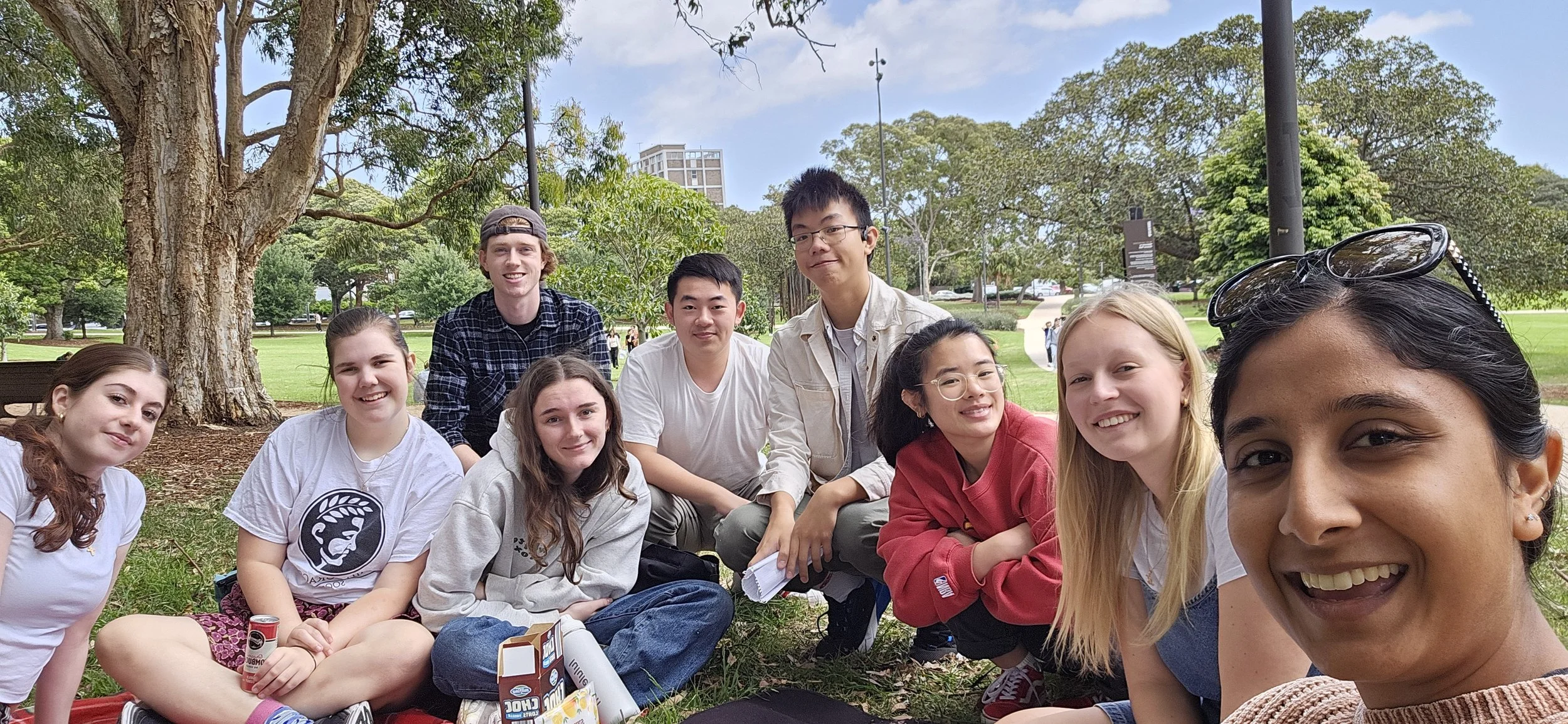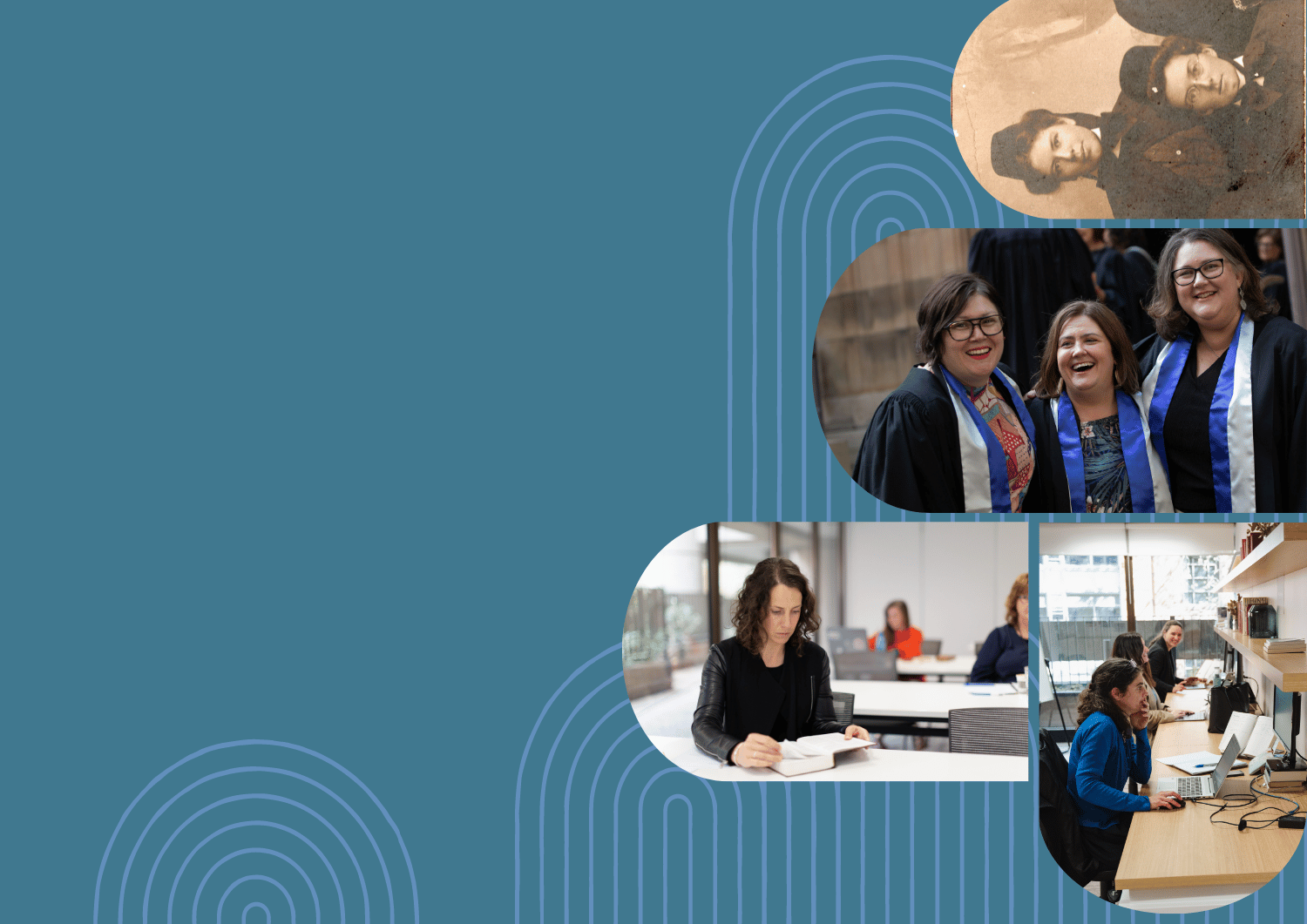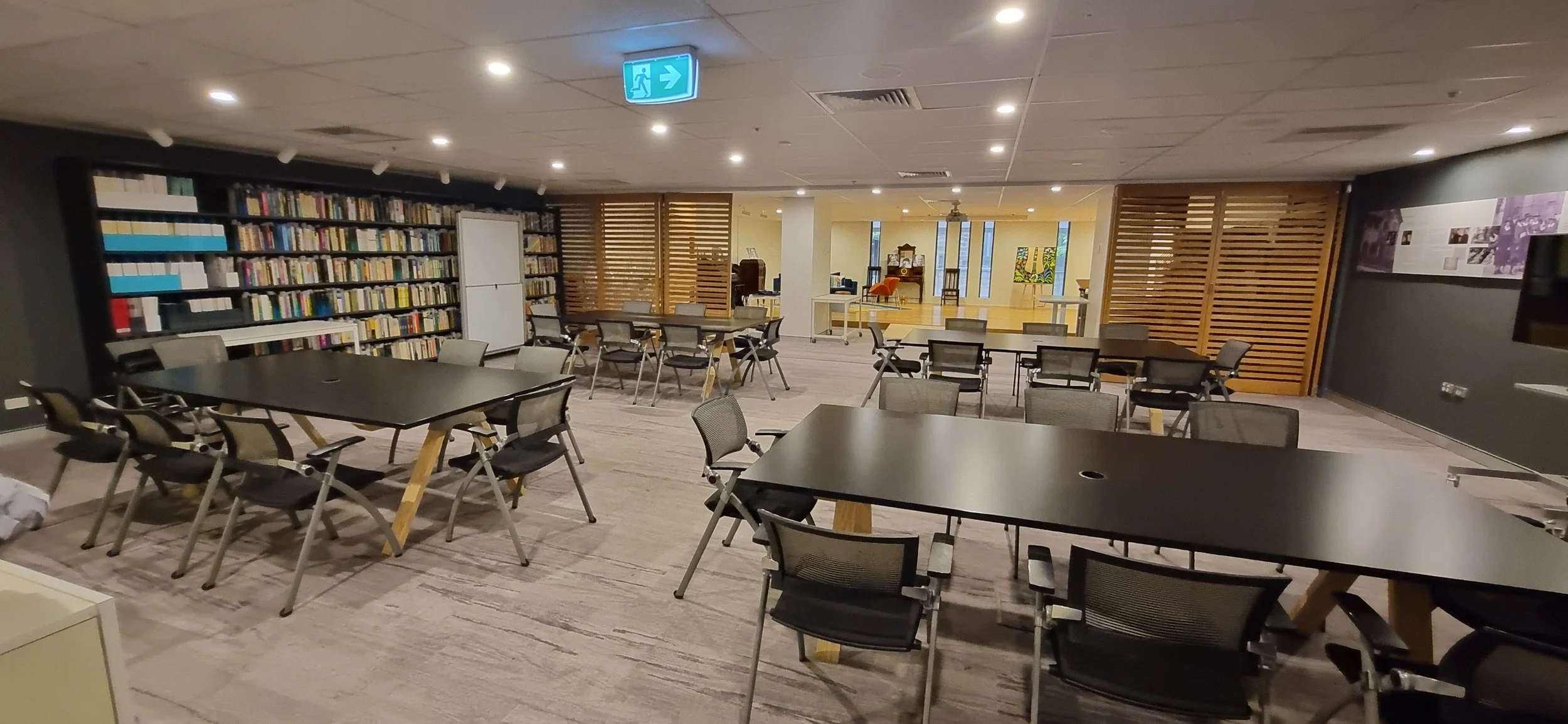Chaplaincy in Hard Places
By Emma Pitman
Rev. Suzanne Gorham, Rev. Kerrie Newmarch and Katie Tunks Leach at ADM’s Engage Dinner: Chaplaincy in Hard Places, February 2020
When Katie Tunks Leach was working on the South Coast of NSW in December, she didn’t anticipate staying a few extra days because of the fires. But when she and her ambulance colleague got the call, they turned their vehicle around and drove back towards the blaze, where together they provided pastoral support to the paramedics and community leaders coordinating the fire response.
“I learned so much about what it looks like to sit with people, and to help them in ways that are meaningful to them,” Tunks Leach said. “I’m used to being a chaplain in the city but this summer opened my eyes to what our rural brothers and sisters face on a day to day basis.”
“And whatever you do, whether in word or deed, do it all in the name of the Lord Jesus, giving thanks to God the Father through him.”
Tunks Leach was one of three speakers who addressed almost 40 women—including 10 chaplains—Thursday 20 Feb. for Anglican Deaconess Ministries’ first Engage Dinner of 2020. Reverend Suzanne Gorham, Senior Chaplain to Specialist Units in the NSW Police Force, and Reverend Kerrie Newmarch, Chaplain at Bankstown Hospital, joined Tunks Leach, a registered nurse, Ambulance Chaplain and 2020 Senior Research Fellow at ADM, in talking about what it means to work as Christian Chaplains in difficult places.
“Chaplaincy is a ministry of being with people, and journeying with them where they are, and whatever they’re facing,” said Gorham. “Some days it’s being intentional in just hanging around officers and others it’s responding to tragedy. There are major contrasts of awful and lovely moments.”
As a Senior Chaplain with the NSW Police Force, Gorham knows chaplaincy work is both reactive and proactive. It involves building relationships, and also being on call for emergencies and incidents. Yet when called to a scene, Gorham is clear on what her role is: she is there to support the police.
“You put your blinkers on. You decide what you’re going to look at, and what you’re not. Then you focus on the people you’re there to serve - the police,” she said. “And you pray.”
“Chaplaincy is a ministry of being with people, and journeying with them where they are, and whatever they’re facing.... It’s all very much a ministry of presence” Rev. Suzanne Gorham
Often leaders within various organisations such as police, hospitals or ambulances, recognise the value of a chaplain’s presence in caring for officers or medical responders, even if those leaders don’t share the same beliefs. When Gorham began her role with the police, even she was surprised by how highly valued chaplaincy seemed within the force. Chaplains are ranked officers, on par with Inspectors, and as a Senior Chaplain, Gorham reports to the Superintendent of Workforce Safety Command.
“It’s all very much a ministry of presence,” she said.
But such ministry can be difficult and demanding. “As a chaplain for emergency services, you will often be by someone’s side on the worst day of their life,” Newmarch said, who now works as a hospital chaplain after several years as a chaplain for the Professional Standards Unit with the Sydney Anglican Diocese.
Newmarch became the chaplain for the Professional Standard unit in 2012, and just six weeks later, The Royal Commission into Institutional Responses to Child Sexual Abuse began. Responsible for ensuring that clergy and church workers adhere to a code of conduct, the Professional Standards Unit addresses complaints and administers a disciplined procedure when ministry leaders fall short. The role of the chaplain, Newmarch said, is to support victims and walk through the process with people who have disclosed abuse. She said that when a church is in crisis, outside pastoral care is critical.
Like Gorham, Newmarch knows the requirements and boundaries of her position; she wasn’t responsible for investigating any misconduct nor did she have to make any choices about whether a story was true or not true.
“I was able to do the job because my role was clear as to what I was to do and what I wasn’t to do,” she said. “Up until 2003, the Diocese didn’t have a chaplain in this area. It was dealt with by lawyers, so you can imagine how people might have perceived our Diocese. My role was to help deal with the anger and pain of church members, to support the person making the complaint, and to begin the journey with them.”
Often the first point of contact for someone disclosing abuse within their church, Newmarch—like most chaplains—ministers to people at their rawest or most vulnerable. She continued to walk with them and helped facilitate access to counselling. She also ran parish recovery programs and supported victims through legal proceedings, remaining a source of support throughout the process.
Such ongoing pastoral care and emotional investment can take its toll. Self-care is crucial, each chaplain emphasized. Consequently, they are as intentional in maintaining their own wellbeing as they are in providing pastoral care for those in need. Gorham said chaplains must try to avoid what they call vicarious trauma and post traumatic injury, both of which can result from walking with people who are experiencing and processing trauma.
Katie Tunks Leach, 2020 ADM Senior Research Fellow and Ambulance Chaplain, describes her work at our Engage Dinner in February.
“The Gospel (truth) has got to stay at the forefront of my mind because if it doesn’t, I’m not actually doing Gospel work. I’m just being a nice person and that’s not what I’m employed to do, and that’s not what God’s called me to do.”
Reflection, supervision, prayer, beauty and focusing on the Gospel are each aspects of such self care. Gorham goes back often to the passage in Colossians to remind her of her purpose, “And whatever you do, whether in word or deed, do it all in the name of the Lord Jesus, giving thanks to God the Father through him.” Newmarch seeks out beauty and intentionally lets go of the day’s challenges before heading home.
“Every day when I caught the train home, I would hop off at Circular Quay station and just spend a few minutes looking out at the view,” said Newmarch. “It helped me to take off what I had seen that day. Then I would get back on the train and felt I could leave it behind.”
For Tunks Leach—whose Fellowship project at ADM involves researching best practices in ‘caring for the carers’ in ambulance chaplaincy—the work requires a practical theology of helping other with whatever they might need, trying “to be the hands and feet of God.”
Regardless of the setting or the difficult circumstances, the chaplains admit they must be authentic in their character if they are to be effective, listening well and praying for others even when they themselves might feel inadequate
“The Gospel (truth) has got to stay at the forefront of my mind because if it doesn’t, I’m not actually doing Gospel work. I’m just being a nice person and that’s not what I’m employed to do,” Gorham said. “And that’s not what God’s called me to do. I’m a person who lives, speaks and shares the Gospel by loving God and loving my neighbour. Walking alongside others in the lows and the highs is a deep joy, because we have the God of all comfort. I wake up every day and thank God for this privilege it is to have this season of ministry and these opportunities.”
Emma Pitman is a Sydney-based writer and was a 2019 Creative Fellow working on a series of essays.















Bibles and barbecues: how Living Water is reaching Redfern
Living Water, a church plant under the Evangelism and New Churches arm of the Anglican Diocese of Sydney, regularly holds services and gatherings in Redfern Park, rather than inside their building. By doing this, they are better able to engage with the community of Redfern, and also support their largely Indigenous congregation to embrace their connection to country.
Recently, Living Water Church, through one of their team members Bridget Allen, were recipients of a Women in Ministry Support Scheme grant from ADM. Part of this grant has been used to purchase a portable barbeque which the church uses to cook during their outside gatherings. This can draw a crowd as people approach for a tasty meal, and then meet the church members and hear the gospel proclaimed.